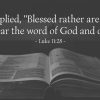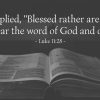Jason Kirk’s newly released novel Hell Is a World Without You is not my usual reading fare. Nor is his book CT’s usual coverage fare. As you’ll gather from our conversation below, Kirk has left evangelicalism behind and is reflecting on the church of his youth with a critical, if somewhat sympathetic, eye.
I was too shy a teenager to really embrace early 2000s youth group life, but Kirk’s childhood church setting—which serves as the backdrop of his book—was basically the setting of my childhood too. Many evangelical-exvangelical conversations of today, which can be charged, if they happen at all, also arise from this setting; so I was intrigued at the prospect of a writer not only willing but eager to talk about that divide. I reached out to Kirk, a sports journalist at The Athletic, to discuss his experience and depiction of evangelicalism, exvangelicalism, deconstruction, and more.
This interview has been edited and condensed.
Let’s start with the basics: Tell me a bit about yourself, the book, and how you came to write it.
I was raised Southern Baptist in Atlanta and grew up attending church Sunday morning, Sunday night, Wednesday night—the whole thing, all the way until early college. I had the entire evangelical kid career.
As a teenager, I started having the vague, gnawing, constant sense that I didn’t fit in with high-control, conservative religion, even though it’s where all my friends were and where we experienced all the fun and joy and music and hugs and laughs and pizza. That disconnect involved a mix of emotions, politics, social stuff, philosophies, events I witnessed, and more—as is the case for just about any major shift in anybody’s life.
In my 20s, I ignored religion as hard as I could, though I felt only a mild bitterness. But after college, I started working in sports media, and it was there I started meeting a lot of people from around the country, some of whom had a similar upbringing. Through that, I started realizing that all the things I thought I’d left behind when I left church during college were still with me, and that other people had had similar experiences: Oh yeah, that was kind of weird that Wednesday night in church when someone did a hell performance, and someone made a kid read a pretend note from someone who was in hell asking why no one had shared the gospel with him.
In conversations comparing those memories, it started to emerge for me that there’s a story here that feels so underrepresented in fiction. Obviously, there are a lot of great nonfiction books [about evangelicalism and deconstruction], and a lot of people know the “lapsed Catholic” version. But there’s so little fiction that tells the story of someone who left this very specific kind of church—this turn-of-the-century evangelical church. I decided, That book should exist. I guess I should get started on it.
I’ve seen some of the reception for the book, but I’m curious who you’d say is your typical reader. Is it mostly people who recognize themselves in the story—millennial-ish exvangelicals? Have you heard from readers who still consider themselves evangelicals?
It’s been a mix between people who grew up evangelical and left that space but also people who knew nothing about evangelicalism. And I’m sort of taking them on a tour. I’ve had a lot of people reach out to me to say, either, Thank you for showing me myself in the story, or, Thank you for explaining why my neighbors are the way they are.
As far as people who are still within conservative evangelicalism, I haven’t heard from a ton of those folks yet. I’m very interested to hear what they have to say as the book makes its way to them.
You’ve told a story that in many ways is so evocative—the AOL Instant Messenger transcripts were frankly too recognizable—but of course, it’s also just one story. Did you feel a tension, given how many people who grew up in that turn-of-the-century evangelical church didn’t feel mistreated and didn’t leave?
I tried to represent a variety of characters, to have a range of religious perspectives among the characters who—hopefully—readers like even if they don’t share their exact experiences. Many of them continue to be various kinds of Christians. My wife has been basically a mainline Protestant her entire life. A lot of my best friends I met in church, and they’re still Christians.
And I’m still a kind of Christian. In my 30s, I finally started going back, examining things I’d never realized were deep traumas, learning to forgive myself and many others, and then finding theological and political answers that reframed everything going forward. It turns out the Christians who’d molded me were wrong to claim that unless I agree with them on everything, I can’t keep any of it.
So I have come all the way back around to a version of Christianity—partly due to the process of writing this book, finding so many things about the Bible, about Jesus, about kinds of Christian theology and Christian politics that I love. I’ve come back around to a place where I love the mystery of God. I love the idea that the universe is progressing toward all things being made new. I love the politics of Mary in Luke chapter 1. I love the anti-imperialism that we see from Exodus through Revelation.
There are so many things about Christianity that I love, and it has always been the framework of my head. It’s just, I’ve managed to change the scaffolding a bit, I guess.
Hell comes up in the title, so it’s hardly a spoiler that this is a major theological issue in the book, and specifically for the protagonist, Isaac. It’s a topic I’ve wrestled with as well, moving toward what C. S. Lewis wrote in The Great Divorce, and I understand how discovering different theological perspectives within the bounds of little-O orthodoxy can be a kind of lifeline.
But I have a thesis about deconstruction of which I’m increasingly convinced: It’s that few people deconstruct or deconvert primarily because of theology. A lot of the reasons people drop out of faith—and there’s research on this—are more mundane and much less about principle, like the difficulty of finding a new church after moving or being required to do things as a Christian that you don’t want to do. Am I too cynical?
I think you’re right. I think it is a mix. For me, the questions started with, I don’t like this thing an adult told me. Right? I'll admit that, absolutely. It started with, What this adult just told me doesn't make sense. This adult just told me I have to believe this thing, but the Bible says this other thing, and this other adult says this other thing.
For me, theology was sort of a final blow, but having a head full of shame and guilt and anger was far more driving for me than any theological discovery. But once I started to view God not as a thing we can’t even escape from even if we die but rather as someone who loves us no matter who we are when we die, that was a turning point. It was a reclamation to go from This thing made me feel terrible for my entire adolescence to Wait a minute, there were parts of it I loved, and those are still mine, and no one can take them from me just because a pastor said insane things to everyone in the entire room for a couple of decades.
I’d like to get your take on evangelical-exvangelical relations. That point of contact often seems very fraught, certainly within families, but also on the internet. Sometimes it’s people acting in bad faith, but it’s also people talking past one another to the point that neither side can imagine that the other could possibly be sincere or sincerely seeking a good end. Do you think that relationship can—at whatever scale—be good or better than it is?
Obviously I’m very biased. But to me, the thing that will remain a gigantic sticking point is the complete and total adoption of right-wing politics by so much of evangelicalism. I don’t mean every evangelical or every evangelical church, of course, but it’s coming to a point where that word, evangelical, will become for all intents and purposes synonymous with right-wing.
And to me, a biased person, I don’t see right-wing politics in the words of Jesus preaching unity and forgiveness and wealth redistribution. The gospel is political, and it always has been, and I don’t think there’s wiggle room on whether [Christians] should love our enemies or not. Jesus said we should love our enemies. There’s not much wiggle room on whether we should love our neighbors.
So when I hear prominent evangelical leaders saying, essentially, that we should not love our neighbors, it’s difficult to find the common ground there. It feels [kind of unfair] to say, Well, those people should change, and then we will stop arguing. But to me it’s a choice: Is Jesus Lord or is America Lord? Because they can’t both be Lord.
You raise the command of loving our enemies, and I’m fully on board there. I’ve spent a lot of time in the Mennonite tradition. But aren’t right-wingers, then, your enemies to be loved? Even if it’s their very failure to love their enemies that puts them in that category?
Sure, absolutely. I mean, look at the gospel and see which enemies Jesus loves most: the tax collectors. Who would be a tax collector right now? A cop, right? And for a leftist, who would be more offensive to embrace than a cop?
If Jesus was here right now, yes, he would hang out with people whom the right wing despises, and he would hang out with people whom the left-wing despises at the same time. He would have a point of view—he would have a worldview—and when it came to deciding who’s correct, I do not see him siding with people who favor what I view as oppression.
And when it comes to loving—I mean, I don’t view disagreement as hate. Not to turn everything back to the book—
No, no. That’s why we’re here.
One character is a pastor who embraces right-wing politics because he’s driven by the fear that his church isn’t leading enough people to what he believes the gospel to be. His church is veering toward Christian nationalism, but it’s because this man wants to keep people from going to hell. He’s embracing this kind of politics because it’s getting them in the door where they can then meet him at the altar.
I tried to write a story in which if the villains are correct, then they are doing the right thing. Ultimately it comes down to: If that’s how God works, how do we respond to God? If God designed an afterlife that works like that, do we go along with that or not? And for me, that’s the fundamental question of the book.
To unlock this article for your friends, use any of the social share buttons on our site, or simply copy the link below.
To share this article with your friends, use any of the social share buttons on our site, or simply copy the link below.
source














Post comments (0)